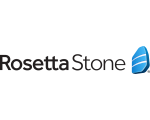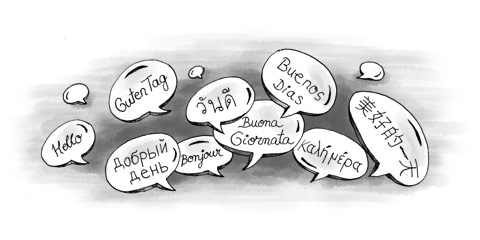Despite claims like 'learn French in 30 days', there are no real shortcuts to speaking and writing fluently. But you can speed this process up. However, our tips will help you to learn French more effectively.
It all starts with yourself..
The best tip is to get immersed in the language and practice, practice, practice! If you can cut yourself off from everything but French for a period of time, do so; this can be a real help. Read newspapers and magazines, watch television and films and listen to the radio. Get as much personal contact with people as possible. Chat with neighbours, shopkeepers, barmen, etc. - anyone is a good target for getting a bit of practice in. The more you are exposed to French and the less you use your native language, the quicker you will learn. Memorizing grammar rules is wonderful, but nothing beats practical experience.
Television is probably the quickest way to increase your level of listening comprehension. It's free and you are guaranteed to hear people speaking naturally (and fast). Don't expect to understand everything, especially things like chat-shows, as this is difficult even for people with a good level of French. The more you listen and watch, the quicker you will find yourself picking up words and phrases. You will be surprised how much you can learn in a way that is 'relatively painless'.
Language courses
To get started many people take a French language course. Between local universities offering language programs (if you are on an exchange programme, this may be provided at the start of the year) and language schools, there are many different options on offer.
Courses are usually conducted exclusively in French, even for beginners, which should help you become accustomed to French sounds and pronunciation. If you need to gain a basic knowledge of French in a short timeframe, there are intensive courses that will give you a 'kick-start' in the language. Otherwise, it is generally advisable to learn at a more measured pace over a longer period of time.
Obviously, success is a function of the amount of time and effort you put in to learning. Making a concerted effort to practice both in and outside the classroom will rapidly improve your ability.
The following sites will provide you with further information on language courses:
- Centers recommended by the French Government offering certified language courses: www.qualitefle.fr
- SOUFFLE Groupement professionnel des organismes d'enseignement du français langue étrangère: www.souffle.asso.fr
- Groupement des centres d'enseignement du français langue étrangère en France: www.fle.fr
Private lessons
If your time is limited or the idea of a language course doesn't appeal to you, you could take private one-to-one classes. Depending on the teacher, this is a very good way to learn. It is also usually the most expensive; a typical rate is €15-23/hour. However, there are many people nowadays offering their services (occasionally online) at a lower rate.
Most language schools can arrange private lessons, but it is usually much cheaper to make direct contact with a private teacher. Quality will vary depending on the ability and experience of the teacher. This can have a large impact on your progress, especially if you're a beginner. When choosing, make sure you feel comfortable with the person and the way they are teaching. If you feel you are not getting on with a teacher, don't be afraid to change.
A good way to find a teacher is to ask friends or colleagues for recommendations. You can also look at notice boards in language school and universities. Another good idea is to take a look at our Just Landed classifieds section to find people who offer language classes.
Language exchanges
Language exchanges (échanges) are a good way to get free conversation practice. They work by pairing up with a French person that wants to learn your language. You switch between the two languages, helping each other. This is also a great way to meet new people and make friends. Most universities and language schools either maintain lists of potential French candidates or at least have a bulletin board with postings. You can also use our Just Landed boards for finding an exchange partner.
Dictionaries
If you're serious about learning the language, invest in a big edition of the Larousse or Le Petit Robert. These will give you the most updated and comprehensive information about modern French. If just starting out, get yourself a pocket-sized bi-lingual dictionary with your own language (Collins or Hachette tend to be pretty good) and upgrade to a larger dictionary when you need it.


